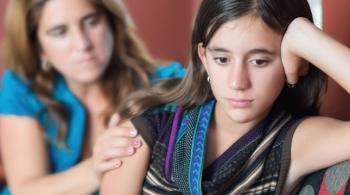The Center for Neuropsychological and Psychological Assessment (CNAP) offers comprehensive neuropsychological and psychological assessment services for children with a range of medical, neurological, developmental, attention, learning, emotional, and behavioral concerns.
Outpatient assessment clinics provide evaluations of individuals ranging in age from infancy to young adulthood. All department services apply professional expertise to understanding development and function, and emphasize targeted treatment recommendations to families, schools, and other professionals in order to maximize each child's potential.
Our Professional Team
All faculty and staff psychologists in the Center for Neuropsychological and Psychological Assessment are licensed by the Maryland Board of Examiners of Psychologists. Additionally, psychology associates, doctoral students in psychology, pre-doctoral interns, and post-doctoral psychology residents work under the supervision of licensed psychologists in accordance with state regulations.
Services We Offer
Assessments typically include a thorough review of the child's developmental, medical, educational, and family history, clinical interview with the caregiver(s), direct observation of the child, and formal psychometric testing. In many cases, behavioral reports from teachers can also be obtained with parental/guardian consent. Formal testing may include measures of the following:
- Adaptive skills
- Attention/executive functions
- Behavior
- Executive functions
- Intellectual functioning
- Language and language-related functions
- Learning and memory
- Non-verbal/visual processing
- Motor skills
- Personality and social-emotional functioning
- Academic/pre-academic achievement
The outpatient assessment services within the Center for Neuropsychological and Psychological Assessment are organized into eight specialized clinics. Children referred for assessment are assigned to one of these clinics based upon referral questions and individual needs in order to create the most individualized assessment experience. The clinics are described below.
The Congenital/Genetic Conditions Clinic provides specialized neuropsychological assessment of children, adolescents, and adults with a variety of congenital and genetic disorders. Patients evaluated in this clinic include individuals with more commonly occurring neurologic conditions such as Down syndrome, hydrocephalus, 22q deletion syndromes, cerebral palsy, and spina bifida, as well as individuals with rare genetic conditions/syndromes and metabolic disorders. Many individuals evaluated in this clinic have a known genetic or congenital condition, but often the diagnosis is unknown or only suspected. Assessments are individualized to help clarify diagnosis when possible, monitor cognitive status, and help with therapeutic planning. Typically, assessments in this clinic take a full day to complete and include interviews with the patient and caregivers, performance-based testing, completion of rating scales, as well as feedback and recommendations given to the family.
Clinic Head: Carolyn Caldwell, PhD, ABPP
For youth who have been assessed recently, the Consultation Clinic offers families information and support related to their child’s condition, interpretation of previous assessment findings, and recommendations regarding treatment and educational planning. An appointment in this clinic typically lasts 2-3 hours and involves review of existing records (e.g., neuro/psychological assessments, educational assessments, IEPs, 504 Plans, report cards) and contact with the child’s school, as necessary, followed by discussion with the family centered around diagnoses, treatment options, and educational planning.
Clinic Head: Alison Pritchard, PhD, ABPP
The Development and Early Learning (DEL) Clinic provides psychological assessment, consultation, and follow-up services for children up to age 7 who present with developmental, behavioral, and/or learning concerns. An appointment in this clinic begins with a telehealth interview to gather information about the child’s history and current concerns. An in-person evaluation is scheduled to take place on a different day, if an evaluation within the DEL Clinic is recommended. The purpose of the evaluation is to inform diagnostic clarification and intervention planning across settings. A telehealth feedback appointment will be scheduled after the evaluation to discuss results and recommendations. Ongoing follow-up and support will occur as needed, depending on the needs of each individual child. For more information about the DEL Clinic, please email DELClinic@KennedyKrieger.org.
Clinic Supervisor: Shelley M. McDermott, PhD, BCBA-D
The DEL Clinic is exploring the possibility of offering school-readiness intervention to children transitioning to prekindergarten or kindergarten. If your child is eligible for this intervention service, he/she will be placed on a wait list and you will be notified when this service becomes available.
For more information on early development and learning:
- Centers for Disease Control and Prevention: Developmental Milestones
- U.S. Department of Education: Early Learning
- Center on the Social and Emotional Foundations for Early Learning
The Evaluations for Development, Growth and Education (EDGE) Clinic is an interdisciplinary clinic where families can get expert help in understanding their child’s development, learning and behavior. We work with children and teens 4 to 17 years old.
Clinic Heads: Jodi Lindsey, MD; Danielle Wexler, PhD
The Emotion and Behavior Clinic provides assessments for individuals presenting with a wide variety of behavioral and emotional concerns. Specialized assessment services are offered to assist with diagnostic clarification of issues involving mood, behavior, and cognition. Assessments are individualized to the needs of the child or adolescent, and include recommendations for treatment and intervention. Typically, assessments in this clinic take a full day to complete and include interviews with the patient and caregivers, performance-based testing, completion of rating scales, and feedback and recommendations given to the family.
Clinic Supervisor: Tanisha Drummond, PsyD, ABBP
The Epilepsy/Brain Injury Clinic provides neuropsychological assessments for individuals with seizure disorders and persons who have had neurological injuries (e.g., traumatic brain injury, stroke, encephalitis). Individuals can be seen for assessment in this clinic months and/or years following their brain injuries. Assessments are targeted toward clarifying patterns of recovery and making recommendations for school and home settings. For individuals with epilepsy, assessments are individualized to assist with treatment planning and help clarify the impact of seizures and/or related treatments/medications on the development of academic, social, and daily living skills. Length of assessment ranges from 1 hour to full day in this clinic, depending on presenting concerns.
Clinic Supervisor: Cynthia Salorio, PhD, ABPP
The Executive Function Clinic provides evaluations for children and adolescents who are struggling with the development or utilization of skills such as organization, planning, working memory, inhibiting impulses, and problem solving. An evaluation through the Executive Function Clinic may be appropriate for youth who have or are suspected of having a neurodevelopmental or medical condition that can interfere with the development or utilization of executive function skills such as Attention-Deficit/Hyperactivity Disorder (ADHD) or a Tic Disorder. Other variables such as premature birth, prenatal drug/alcohol exposure, and environmental factors (e.g., ineffective behavior management; chaotic home environment) can also interfere with the development or utilization of executive function skills. Executive function skill deficits frequently have a negative impact on academic performance, and academic underachievement often co-occurs in children and adolescents with underdeveloped or underutilized executive function skills. An evaluation in the Executive Function Clinic typically takes a full day to complete and includes interviews with the patient and caregiver, performance-based testing, and completion of rating scales. Caregivers are typically provided with feedback and recommendations on the same day as the evaluation.
Clinic Supervisor: Rashida Barner, PhD
The Infants, Toddlers, and pre-School Years (ITSY) Clinic typically serves children ages birth to 6 years. Patients in this clinic present with a range of concerns regarding developmental delays, behavioral concerns, and attention concerns to more complex medical conditions, including those with histories of perinatal brain injury, cerebral palsy, and congenital and genetic abnormalities. Additionally, some providers have experience evaluating young children with visual impairments or concerns for visual impairment. Providers in this clinic work closely with a number of clinics and centers throughout Kennedy Krieger Institute and Johns Hopkins Hospital in order to provide comprehensive and multidisciplinary care for our youngest patients. Length of assessment in this clinic can range from several hours to full day, depending on presenting concerns and age of the child.
Clinic Supervisor: Gwendolyn Gerner, PsyD
The Neuropsychology Cardiac Follow-Up Clinic provides specialized neuropsychological care to children and adolescents who were born with congenital heart defects. The pediatric neuropsychologists in the clinic evaluate the child’s cognitive and behavioral skills, as recommended by the American Heart Association (AHA) guidelines. The clinic works with parents and caregivers, as well as cardiologists and cardiac surgeons, to share information and strategies to improve outcomes for the child’s development and behavior, as well as to make recommendations for interventions and monitoring over time. Length of assessment in this clinic ranges from 2 hours to full day.
Clinic Supervisor: Cynthia Salorio, PhD, ABPP
The Oncology Clinic provides neuropsychological assessment of individuals who are currently undergoing or are survivors of cancer and cancer treatment. This includes children and young adults treated for leukemia, brain tumors, or other cancers who receive their care locally (e.g., Johns Hopkins Hospital, University of Maryland) or nationally. Assessments are specialized to the needs of the individual, and can help identify temporary and/or long-term learning issues associated with cancer and/or related treatment. Assessments and recommendations are designed to support the survivor’s daily cognitive, behavioral, and emotional functioning as well as any treatment-related concerns for schooling. Typically, assessments for school-aged or older youth in this clinic take a full day to complete and include interviews with the patient and caregivers, performance-based testing, completion of rating scales, and feedback and recommendations given to the family.
Clinic Supervisor: Lisa Jacobson, PhD, ABPP
For more information about our work supporting survivors in their schooling after cancer, click here.
- They Survived Cancer. Now the Hard Part: Returning to School
- Thriving in School after Childhood Cancer
- Supporting Childhood Cancer Survivors in School
The Pathways to Young Adulthood clinic provides comprehensive evaluation, consultation and progress monitoring for older teens and young adults with developmental, attentional, executive function and/or or social-emotional needs. The mission of this clinic is to empower older teens and young adults to understand their learning strengths and needs, self-advocate, better manage self-care and know when and how to seek needed supports to work towards independence. This clinic is focused on addressing the challenges that high school students and young adults face when transitioning into young adulthood.
For individuals who have had prior assessments, consultations are offered to provide a roadmap for developing independence and accessing services. Progress-monitoring sessions offer follow-up after a consultation visit or comprehensive evaluation to help navigate and adjust remaining recommendations.
Clinic Head: Shalena Heard, PhD
The following sub-specialty programs are available for patients seen through the Pathways to Young Adulthood Clinic:
- Post-Secondary Pathways – Patients seen through the Post-Secondary Pathways sub-specialty are those whose primary concerns are related to developmental disorders impacting attention and executive functioning, language-based skills and/or intellectual functioning. Goals of evaluation through this program will be to provide meaningful recommendations for navigating and working towards success in post-secondary settings.
- Social, Emotional, and Behavioral Development Pathways – Patients seen through the Social, Emotional, and Behavioral Development Pathways sub-specialty may have a history of developmental disorder such as ADHD, intellectual disability, and specific learning disability but are primarily impacted by mood, anxiety, and/or behavioral challenges in their lives. Assessment through this program will provide diagnostic clarity, and specific recommendations for patients as they prepare to navigate the world and establish self-sufficiency.
Please note that the Pathways to Young Adulthood programs are not intended for patients primarily seeking educational accommodations for standardized testing such as SAT’s, ACT’s, MCAT’s, LSAT’s or high school or university-based accommodations etc. Recommendations for these may be made within the context of an evaluation if relevant to other primary referral questions.
The Targeted Assessment Clinic offers brief assessment visits for patients who may not require a full evaluation. Patients may be best served by a targeted assessment if:
- The referral question is straightforward (e.g., determining whether or not a patient has ADHD, in the absence of concerns about learning disabilities, intellectual disabilities, and major emotional/behavioral concerns)
- The patient has been recently assessed, but some additional testing is indicated (e.g., an educational evaluation was completed by the school, and a learning disability was ruled out, but concerns remain about the possibility of ADHD)
- The patient has a complex presentation, but most aspects of their presentation are already being addressed in treatment and only one or two questions remain (e.g., a patient who is already diagnosed with ADHD and being treated with medication, and who has already been diagnosed with learning disabilities and is receiving supports in school, but caregivers or treatment providers have concerns about the impact of possible anxiety on the patient’s functioning)
Typically, assessments in this clinic take a half-day to complete and involve interviewing caregivers and the patient, completing 1-1.5 hours of testing, and giving feedback and recommendations to the family.
Clinic Head: Alison Pritchard, PhD, ABPP










